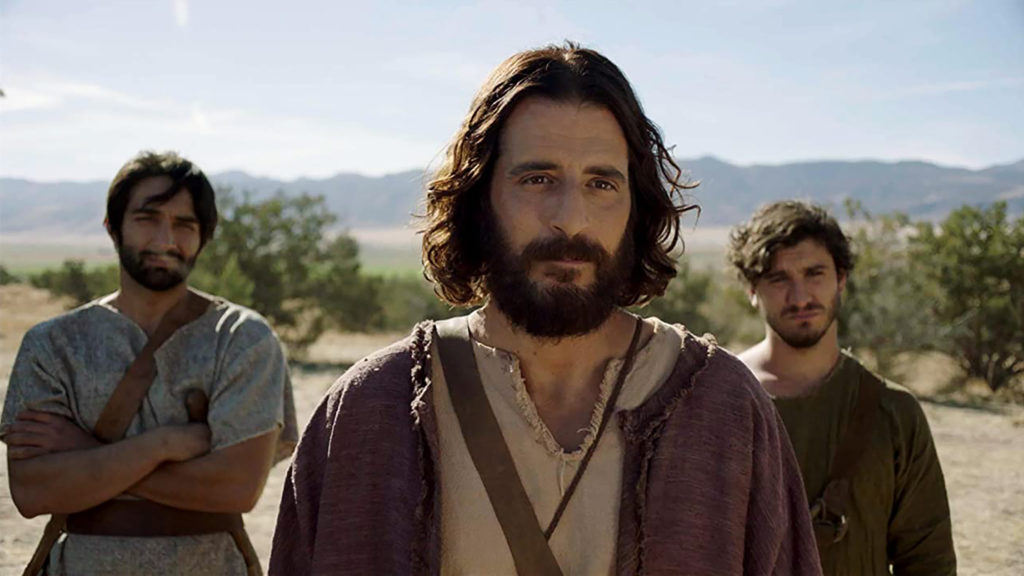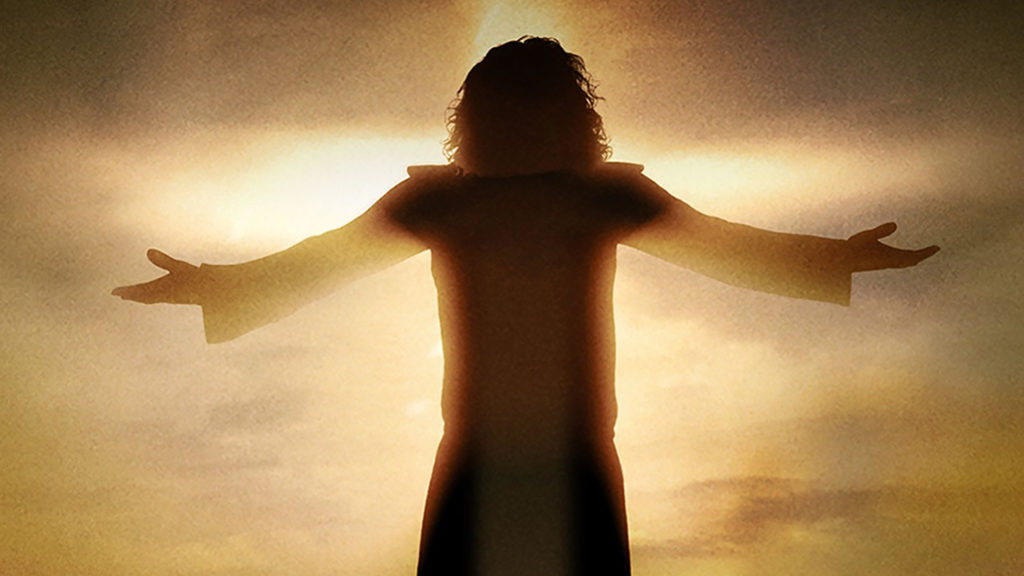What would Jesus do if he returned to Earth today? According to a new movie called “Joshua,” Jesus would shoot pool and play electric guitar when He wasn’t restoring sight to the blind or resurrecting the dead.
Based on the best-selling book by retired Catholic priest Joseph Girzone, “Joshua” opened in selected theaters in Colorado, Florida, Texas, Arkansas, Louisiana, North Carolina and South Carolina April 19. If the film does well, it will open throughout the country by mid-May.
But this faith-based film is merely the initial cinematic offering from Christian billionaire Philip Anschutz, who has created entertainment companies in Hollywood and New York that plan to release dozens of positive, family-friendly movies over the next few years.
Anschutz, a committed Christian who frequently appears on lists of the world’s wealthiest people, isn’t exactly a household name, and that’s fine with him. His Denver-based Anschutz Corp. declines requests for biographical information, and London’s Guardian newspaper once called him “one of the richest, but least known, businessmen in America.”
Closer to home, the Denver Business Journal compared him to an earlier reclusive billionaire who dabbled in the entertainment industry, saying, “Anschutz makes Howard Hughes look extroverted.”
But if Anschutz has his way, Americans will be seeing dozens of his company’s films over the next few years.
“Joshua,” a $9 million drama, is being released by Epiphany Films, the “faith-based” division of Anschutz’s 2-year-old, Beverly Hills-based Crusader Entertainment.
The company also plans to release two nonreligious films this year. Next year the company plans to release 10 to 12 films.
Meanwhile, Anschutz’s New York-based Walden Media is working to bring C.S. Lewis’ “The Lion, the Witch, and the Wardrobe” to screens across the country in 2004.
“We’re ramping up pretty rapidly,” says Bob Beltz, a former Colorado pastor who now serves as a consultant and spokesman for Anschutz.
“Mr. Anschutz believes that the media are perhaps the most powerful force in shaping culture today,” says Beltz. “Historically, we’ve been bombarded with negative entertainment, and this has created a toxic culture.
“But he believes he has been provided with an opportunity for film to be used in a positive way. There’s an opportunity here to do good and to make money doing it.”
Anschutz was born in Kansas in 1939, took over his family’s ailing oil business when he was 20, and proceeded to strike gold with gas exploration, railroads, sports franchises such as the Los Angeles Kings hockey team and once- bankrupt movie theater chains.
His Midas touch has been less evident with Qwest Communications, which he founded in 1993. The company is now America’s third largest long-distance provider, but its poor financial performance has dropped Anschutz from a No. 16 ranking on Forbes magazine’s 2000 listing of the world’s wealthiest people to No. 54 in 2001, when Forbes estimated his net worth at $5.1 billion.
Anschutz is a card-carrying Republican and major GOP donor who is said to be on friendly terms with President Bush. And as more than a few members of the Hollywood press corps have noted, he gave $10,000 to support Colorado’s Amendment 2, a gay rights limitation initiative that passed with 51 percent of the state’s voters in 1992 but was later overturned by the U.S. Supreme Court.
Beltz, who has known Anschutz for 20 years, calls him a “mainstream Christian” who has no plans to take over Hollywood or impose his values on others.
“He is sometimes portrayed as a raving fundamentalist, but that couldn’t be further from the truth,” says Beltz, a founding pastor of Denver’s Cherry Hills Community Church. It was while Beltz was pastor of the megachurch in the early 1980s that Anschutz, who was raised Methodist, made “a significant recommitment to the faith of his childhood,” says Beltz.
“He is a solid, mainline, committed believer in Jesus who is not out to convert Hollywood,” he explains. “He just wants to use film as a positive influence in culture.”
But will moviegoers support Anschutz’s cinematic vision at the box office? Beltz is cautiously optimistic.
“When we started doing this two years ago, the environment in
Hollywood was not extremely receptive, but since 9/11 there has been a major shift. At the moment, we feel like we’re in the right place at the right time.”
“Joshua” probably won’t convert many atheists. But its portrayal of Jesus is one that many people of faith will find both intriguing and moving.
Professionally produced
The film also represents a new level of professionalism in “Christian” films, a still embryonic but rapidly evolving genre previously best known for embarrassing end-times movies such as “Left Behind” and “The Omega Code.”
Starring Tony Goldwyn (“Bounce,” “Ghost”) as Joshua and Oscar-winning F. Murray Abraham (“Amadeus”) as Father Tardone, a strict and stuffy Catholic priest, it strikes a happy balance between earthiness and otherworldliness.
From the moment Joshua arrives as a stranger in the fictional town of Auburn, he is a magnet for hurting. He instinctively feels people’s pain, helps them overcome their problems and enlists them in his efforts to rebuild a rundown Baptist church.
Joshua’s spiritual charisma and miracle-working power arouse the suspicion and envy of Auburn’s religious establishment, but Father Pat, a younger priest, and 11 other community members welcome Joshua into their community and become his devoted disciples. Following him, they experience a measure of healing and redemption.
The movie’s soundtrack features Michael W. Smith, Third Day, Jaci Velasquez and other well-known contemporary Christian recording artists.





Share with others: